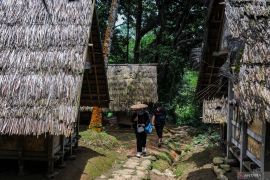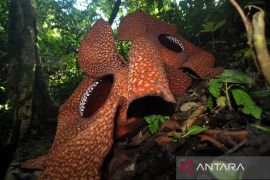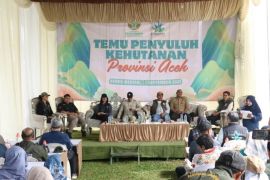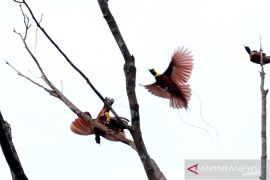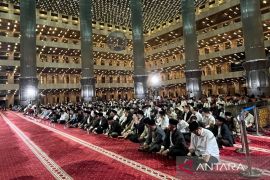"We annually conduct tree plantation movement to protect the forest," an elderly member of the Baduy tribe, Dainah, said here on Monday.
Knowing fully well that damage to the forest may lead to natural disasters, the Baduy people try to protect the forest by not indulging in hacking trees for wood.
Moreover, the 3,100 hectares of conservation forest located in the Kendeng highlands is an upstream area of the Banten province.
Forest surrounding the Baduy community plays an important role in water absorption and natural resources conservation.
"We cannot imagine what would happen if the protected forest is damaged. It can lead to floods, landslides and droughts," Dainah explained.
As a custom followed since the time of their ancestors, the people of the Baduy tribe, numbering 10,500, are prohibited to indulge in tree logging, both in the conservation as well as indigenous forests.
However, the Baduy people are allowed to do logging if they plant some trees in the field or gardens outside the conservation area.
Currently, the timber produced from Baduys gardens and fields can be sold as home building material and household furnishings.
In fact, wood is also used to prepare handicrafts to support their economy.
The head of Kanekes village, Leuwidamar district of Lebak, Saija, said such a green movement in which several kinds of trees are planted in the forest of Baduy, was essential to prevent natural disasters.
"We must maintain the protected forest through a continuous green movement," he said.
Head of Forestry and Plantation Agency of Lebak, Kosim Ansori, explained that every year, the local government supports the Baduys green action by distributing relevant aid.
"We appreciate the Baduy people who have been consistently maintaining the forest and following the land conservation practices," he stated.(*)
Editor: Heru Purwanto
Copyright © ANTARA 2016
